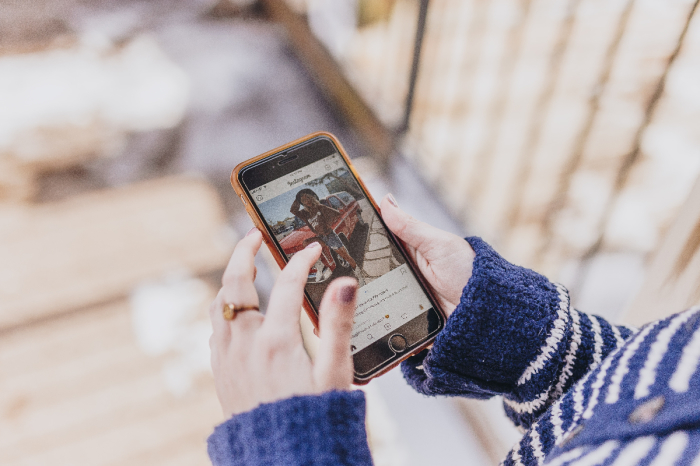Excessive scrolling on TikTok, apps can lead to sleep problems but Americans are addicted: study

Even though health experts have long warned that the practice can cause insomnia, nearly 40% of Americans admit to scrolling through apps like TikTok before bedtime, and more than half say they do it to help themselves wind down, a new survey shows.
The new study of 1,500 Americans conducted by MattressNextDay found that 39% of Americans admit to being obsessed with scrolling through apps on their phones before bedtime and 56% say they believe that scrolling through apps helps them wind down. A staggering 68% of respondents also admitted to using their phones within an hour of going to sleep every night.
Results from the study show that people spend nearly six hours during the workweek watching videos on YouTube making it the top social app among respondents for the period. On weekends, however, TikTok is the top distraction at night.
Overall numbers show Facebook remains the top social media app among Americans, followed by Instagram, which was selected by 60.7% of respondents, then TikTok, chosen by 42.4% of respondents.
“Despite there being lots of research showing that blue light can affect sleep, more than two-thirds of Americans admit to using phones, iPads, and other electronic devices before bed,” the researchers noted. “When asked why, 56% said to wind down, and 50% said so they could reply to messages from family and friends sent earlier in the day. To a lesser extent, people said they scroll on their apps before bed to look at something they couldn’t attend, to check the number of likes and comments on something they’ve posted, or to post new content on their social channels.”
According to Northwestern Medicine, blue light suppresses the brain’s production of melatonin, which is a hormone that helps with sleep timing and circadian rhythms.
“Blue light isn’t new, but in nature it is most abundant in the morning hours, which signals [to] the brain it’s time to wake up and be alert. On the other hand, red light, which is emitted when the sun sets, signals that it is time to go to sleep,” the integrated healthcare system in the Chicago area notes.
“When you use smartphones and other blue-light-emitting technology, like laptops or tablets, right before bed, your body’s cues to go to sleep are delayed. This, in turn, throws off your natural sleep-wake cycles.”
A disrupted sleep cycle, explains the health experts, doesn't just result in a loss of sleep but contributes to a number of health issues, such as: mood problems, including anxiety and depression; increased risk of accidents; impaired memory and ability to learn; heart attack; obesity and type-2 diabetes and various cancers.
To improve sleep, the health system suggests that people avoid using smartphones and other blue-light emitting devices two to three hours before bed.
People can also use orange or red reading lamps for night lights; keep their bedroom completely dark or use a sleep mask; and get as much exposure to natural light throughout the day as it increases the ability to sleep at night.
Contact: leonardo.blair@christianpost.com Follow Leonardo Blair on Twitter: @leoblair Follow Leonardo Blair on Facebook: LeoBlairChristianPost


























